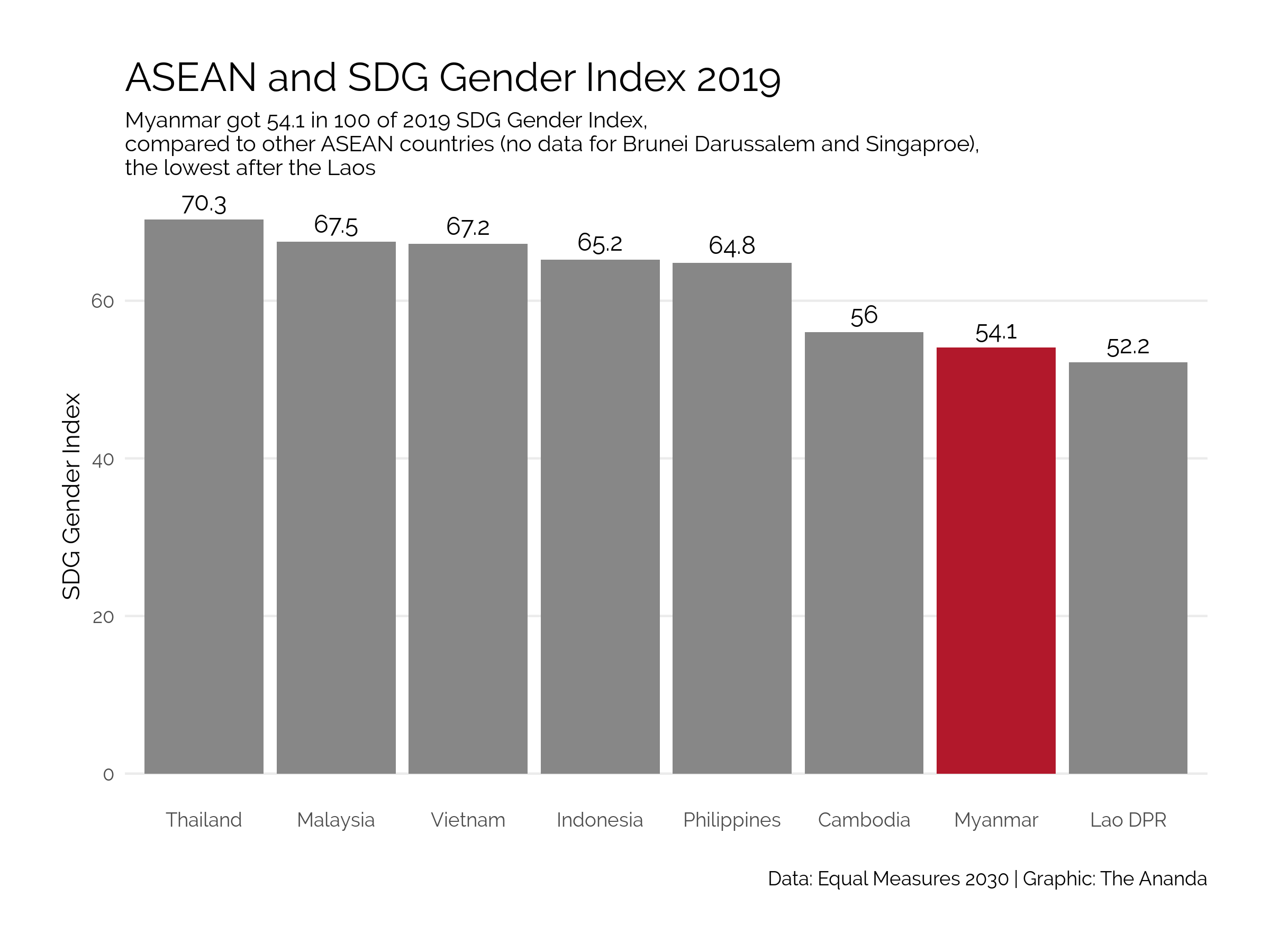Posted in Legislative Research on Feb 05, 2020
 The bill has been described in a government-owned newspaper since the 25th of January 2020, and was posted on the website of the Pyidaungsu Hluttaw on 27th of January 2020. If approved, the law will be the first primary legislation dedicated to the prevention of, and protection from, violence against women, other than relevant provisions in the criminal code.
The bill has been described in a government-owned newspaper since the 25th of January 2020, and was posted on the website of the Pyidaungsu Hluttaw on 27th of January 2020. If approved, the law will be the first primary legislation dedicated to the prevention of, and protection from, violence against women, other than relevant provisions in the criminal code.
Current Status (05.02.2020) – awaiting submission to Hluttaw for debate
(1) Backgrounder
Constitution of the Republic of the Union of Myanmar (2008)
The Constitution promises equal rights to all people before the law and equal legal protection (Article 347). It also prohibits discrimination of any citizen based on race, culture, sex etc. (Article 348). Women have a constitutional right to receive the same salary as men (Article 350).
International Conventions
Convention on the Elimination of all Forms of Discrimination Against Women (1997)
Beijing Declaration (1995)
Myanmar National Committee for Women’s Affairs (MNCWA)
In 1995, a Myanmar delegation attended the 4th World Conference on Women held in Beijing. To implement the goal of equal rights for women set by the Conference, the government established the MNCWA in 1996, and formed working committees at various levels. It was disbanded in 2003, then re-established in 2012.
Under the current government, the Committee was again reformed under President Office Notification No. 81/2016. It is to be chaired by the Minister for Social Welfare, Relief and Resettlement, comprising 6 representatives from CSOs leading women’s affairs. Its duties are to submit a CEDAW report to the UN Committee for CEDAW every four years, to review and implement the National Strategic Plan for the Advancement of Women (2013-2022), and to draft laws and by-laws for the prevention and protection of violence against women.
Myanmar Context
According to data from Equal Measures 2030, Myanmar scored only 54.1 out of 100 in 2019 SDG Gender Index, the lowest after the Laos. The index measures the state of gender equality aligned to 14 of the 17 Sustainable Development Goals (SDGs) and is intended to comprehensively reflect the situation regarding gender equality. In Myanmar, 17% of ever-partnered women in long-term relationships aged 15-49 years have experienced intimate partner physical and/or sexual violence at least once in their lifetime, and 11% of ever-partnered women aged 15-49 years experienced intimate partner physical and/or sexual violence in the last 12 months. (UN Women, 2016).
Myanmar is currently using the Penal Code to protect women against violence, two-thirds of which occurs in the home, yet there is not a separate law. The current bill posted on the website of Pyidaungsu Hluttaw has been in development since at least 2013.
(2) Bill Summary
The bill includes the duties of a Myanmar National Committee for Women; provisions for violence prevention and women’s protection, temporary protective measures and protective orders; authorized persons’ duties who are obliged to protect victims, including responsibilities for the examination of violence cases, and; prohibitions and penalties, including civil reliefs.
-
Its objectives are:
- To educate people about violence against women
- To provide necessary protection to victims
- To improve people’s lives and their safety
- To punish violators
-
Those under the jurisdiction of the law include:
- any person committing an act of violence in the State;
- Myanmar citizen, holder of Alien Registration Card residing in Myanmar or foreigner who is entitled to reside permanently in Myanmar committing an act of violence abroad;
- committing an act of violence on ships or flights registered under the Myanmar flag.
-
The duties of the Myanmar National Committee for Women (MNCW) are to set and administer policy and instructions, to cooperate with the relevant organisations in matters related with violence against women, to examine data collection or research, and to submit an annual report to the Union Government through the Ministry of Social Welfare, Relief and Resettlement (MSWRR). It also has discretion over an anti-violence fund with the consent of the Ministry.
-
Cooperating with the relevant organisations, the MSWRR must establish a victim support hotline, draw up standard plans for counselling, social support and social management, provide legal services and establish prioritised temporary accommodation.
-
Victims may access abortion with the consent of a medical team under the conditions of a threat to life, harm to psychological or physical health, and evidence of rape. If the spouse commits rape and psychological/physical/economic violence, she is entitled to a right for divorce. Business owners must devise workplace policies and other plans for the protection and prevention of violence against women.
-
Temporary protective measures can be applied for at the Township Women Committee by the victims themselves or by others who have the permission of the victims or a reason for the absence of permission. The resulting protective measures plan will last for up to 30 days from the date of request. The committee must assist the complainant in applying to the court for a protective order during that plan period. From the request date, the court must decide on whether to issue the order within 14 days. Those dissatisfied with the decision have to make an appeal to the high court.
-
The court must ensure that while examining evidence of violence against a person, a safe room for examination must be provided, media coverage without consent is not allowed, and that interpretation/sign language is available.
-
The bill also includes provisions related to prohibitions and penalties, and other civil reliefs. The prohibitions are described as cognizable offences.
Other relevant laws
- Penal Code
- Child Rights Law (2019)
Link
Contact
Moe Aung, The Ananda, moeaung@theananda.org
 The Ānanda
The Ānanda